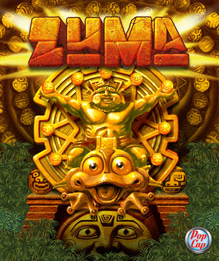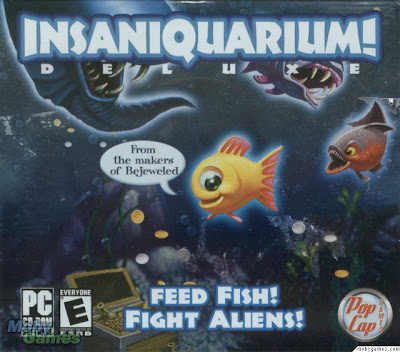The Short
Pros
- Silly, addicting little game simulating running a game-making company
- Has a massive amount of variety, factors, and depth when it comes to making games
- While more a game than a simulation itself, the core things work wonderfully
- Seriously, you think you are going to play for five minutes, and next thing you know it's been four hours
- Allows you to start a new game with the (majority) of your upgrades intact
- Parodies of real-world consoles and development stages are entertaining and cute
- I made a "Bikini Kart Racer" on the Game Boy that sold three million copies and got two sequels on a Blu-Ray home system. Game of the year.
- Also, you can hire a monkey
Cons
- If you are Min/Max gamer, this game will ruin you
- Also, if you are not someone who plays games a lot, the complete lack of instruction can be annoying
- It hides most of its math, etc. behind the cute visuals, so it can be hard to know why a game succeeded or failed
- The first hour or so you only make games that suck, which can be discouraging
- Making your own console is so obscure I'm fairly certain nobody has figured it out without reading a guide
- Doesn't use the full iOS/Android screen, and doesn't have retina display support
 |
| Yes, I made a wrestling MMO called Wrestle Online. Game of the Year. |
The Long
Before I begin it's worth noting that my wife already reviewed most of Kairosoft's Games on her blog. She's played more of them than I have, and while I've spent at least a little time in all of them, all in all Game Dev Story is really the only one that I couldn't stop playing and spent enough time with to review. Point being: they make some excellent iOS and Android games, all in the style of the old "Tycoon" games, and are worth checking out if you own an device.
But Game Dev Story is my favorite. Here's why.
 |
| My game company, Hacktavision, making the big bucks. |
Game Dev Story is about as meta as at gets. A game simulating game making? How quaint! But beneath the colorful visuals and deceivingly simple interface, Game Dev Story is a deep and complex simulation game, one that does a damned good job of sucking all your time away when you least expected it to.
The point is simple: you have fifteen years to make the biggest game company in the world. You start of small in (what I assume) is around 1984-1985, with the NES being the newest big thing. You start with just four employees, but as your games get better and you start winning awards and getting fanmail you'll move to a bigger office and hire more people. All the while new game consoles are coming out (which are entertaining parodies of real-world systems; I always wanted to make a Virtual Boy game) so you have to manage licencing fees in order to keep up with the trend (protip: just build Game Boy games. Seriously, that thing was around forever and always relevant).
 |
| It's funny because it's "Intendro" |
So how do you make a game? Well, Game Dev Story streamlines the process. Essentially you start with a limited number of genres and styles, and you mix-and-match two (like "Bikini" and "MMO"), pick your game system, and start development. It always happens in three stages: design, graphics, and sound, where you can pick employees to give it "stats" boosts. Every game also has five key stats: Gameplay, creativity, graphics, sound, and bugs. The amount you earn during the allotted "design time" (no vaporware here; your games are always released on a deadline) depends on employees, and its always followed by bugtesting (or you can just ship the game buggy and take a hit to your scores). Then you sit back and watch the profits roll in! Or design your next game. Which would be smart.
There's just so much to do in this game it's almost overwhelming. If you are low on cash you can just do side-jobs for other companies to earn the money to fund your next big project. Advertising is important, as you have to cater to both genders as well as a wide range of ages. Consoles rise and fall with market share, and putting a game out on the more popular ones is smart but expensive. Employees need to be trained and leveled up, earning access to new genres and types, but you also need to cycle through them in order to make the best team. Picking a right genre/type combination (like Action RPG + Fantasy) will level it up, earning you points to put into making your game have a niche appeal, be more accessible, etc. Sell well enough and a game can earn a direct sequel, boosting sales but if the sequel sucks the franchise dies. Lastly, you'll receive fanmail, be featured on various gaming magazines, compete to win various Game of the Year awards, and go to E3 every year. Yeah, all in a little silly handheld game. Nuts.
 |
| Fantasy RPGs are expensive to develop, but can move a TON of units. |
It's extremely addicting, mostly because you are constantly being rewarded. While it is possible to screw up and run out of money completely, usually you are just teetering on the brink between financial success and ruin, making every game's sales absolutely necessary for your company to survive. But, seeing as it is smart to be designing your next game while the previous is selling, you'll be watching sales while working on Bikini Online 2.0 or Guitar Hero Space Shooter. It's very hard to stop making just "one more game," and this was the first iOS game I literally played from 100% battery life down to 0%. Hours and hours sitting in the BYU Library when I should have been studying. Whoops.
Like most Kairosoft Games, however, it has one rather big issue: the in-game tutorials are almost nonexistent. The game gives you the bare basics on how the game works, directing you in how to make your first game, but never bothers telling you how to make a game good or which stats are preferable for which stages of the design process or anything like that. So your first run you might fumble about for the first decade while trying to get your bearings, though it does make the game more intense when you are struggling against total financial and company-wide ruin. Most of your upgrades carry over to new games, so your second playthrough will almost always be better than the first. Just...don't try to Min/Max your stats in this, trust me. It's possible but extremely difficult and has a hefty amount of luck involved. It'll kill you. Seriously.
 |
| "Worked really hard?" For 1 Gameplay and 42 Creativity? Somebody needs a motivational poster! |
There are a few other little niggles. You can only have one save aside from the autosave, meaning sharing the game is impossible. While it does try to cover a very wide scope of the video game industry, some stuff is neglected. Why, if I make a game console, do I not receive royalties from people making games from it? Why is the PC always the worst console throughout the whole game (if you want a bigger challenge, try beating the game only making PC games. It's hard!)? Why is the best console I can make only 64 Bit, when I can put a Blu-Ray player in there? Why can't I influence market share if I consistently put awesome, high selling games out on a failing system? How on earth did I sell 10 million copies of Ninja: A Noire Shinobi on my home console when I only sold 5 million consoles? While the little touches are what make this game, I couldn't help but think there should be more of them.
Graphics are also pretty unimpressive. On both Android (my Kindle Fire) and my iPhone the game looks blurry and blown up. It also is the only Kairosoft game that doesn't use the whole screen; it's just a rectangle in the middle. I understand these are ports of Japanese PC games, but it kind of looks bad. While it doesn't matter because the graphics are really just placeholders for the mad math going on in the background, it wouldn't have hurt to have updated it for widescreen and retina display.
 |
| "Ponies vs Zombies" is going to sell out. |
As it stands, Game Dev Story is fantastic. If you have any interest in the video game industry at all, this representation slash parody of the industry is hilarious and clever. But even if you don't, the core game here is so addicting and fun it's worth checking out regardless. It'll suck you in fast, trust me, and the minute you end you'll want to start over and do it again. Kairosoft is making a name for their fantastic tycoon games on mobile devices, and Game Dev Story is no exception.
It runs at $4 on iOS and $2.50 on Android normally, but every time a new Kairosoft game is put out (which is usually one a month) they tend to discount the previous ones, so if the tag looks a little high you can always hold out. I paid $6 for it when it was the only Kairosoft game on the market, and I don't regret it in the slightest. Fun, silly, and with plenty of tongue-in-cheek, Game Dev Story is downright fantastic.
Now port the second one, Kairosoft! Hurry up!












































